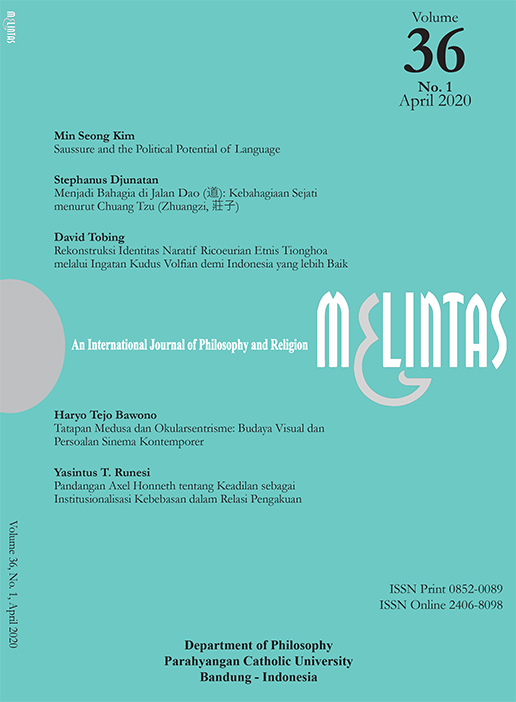Pandangan Axel Honneth tentang Keadilan sebagai Institusionalisasi Kebebasan dalam Relasi Pengakuan
DOI:
https://doi.org/10.26593/mel.v36i1.4682.98-128Keywords:
Axel Honneth, social freedom, justice, Enrique Dussel, solidarityAbstract
This article explores Axel Honneth’s normative reconstruction of social liberty as discussed in his book, Freedom’s Right. Honneth’s argument is complex. On one side, he believes that justice can ultimately only be judged in terms of the ideals actually institutionalised in that society. On the other side, he insists that contemporary theories of justice that are guided almost exclusively by the legal paradigm is a theoretical folly. In the first part, this article presents Honneth’s critical reading of the differences between negative and reflexive models of freedom. Then it discusses the ideas of democracy as reflexive cooperation of the ‘we’ in relation to the concept of social freedom. It then reviews Honneth’s argument on justice as institutionalised freedom. The author compares Honneth’s account of solidarity with Enrique Dussel’s views in the fourth part of this article. The conclusion shows that social freedom cannot be realised without a pedagogical process in this exclusion age, and that this process might enlarge the individuals’ horizon of solidarity as future citizens.Downloads
Published
2021-03-17
Issue
Section
Articles
License
MELINTAS applies the Creative Commons Attribution (CC BY NC) license to articles and other works we publish. If you submit your paper for publication by MELINTAS, you agree to have the CC BY NC license applied to your work.


